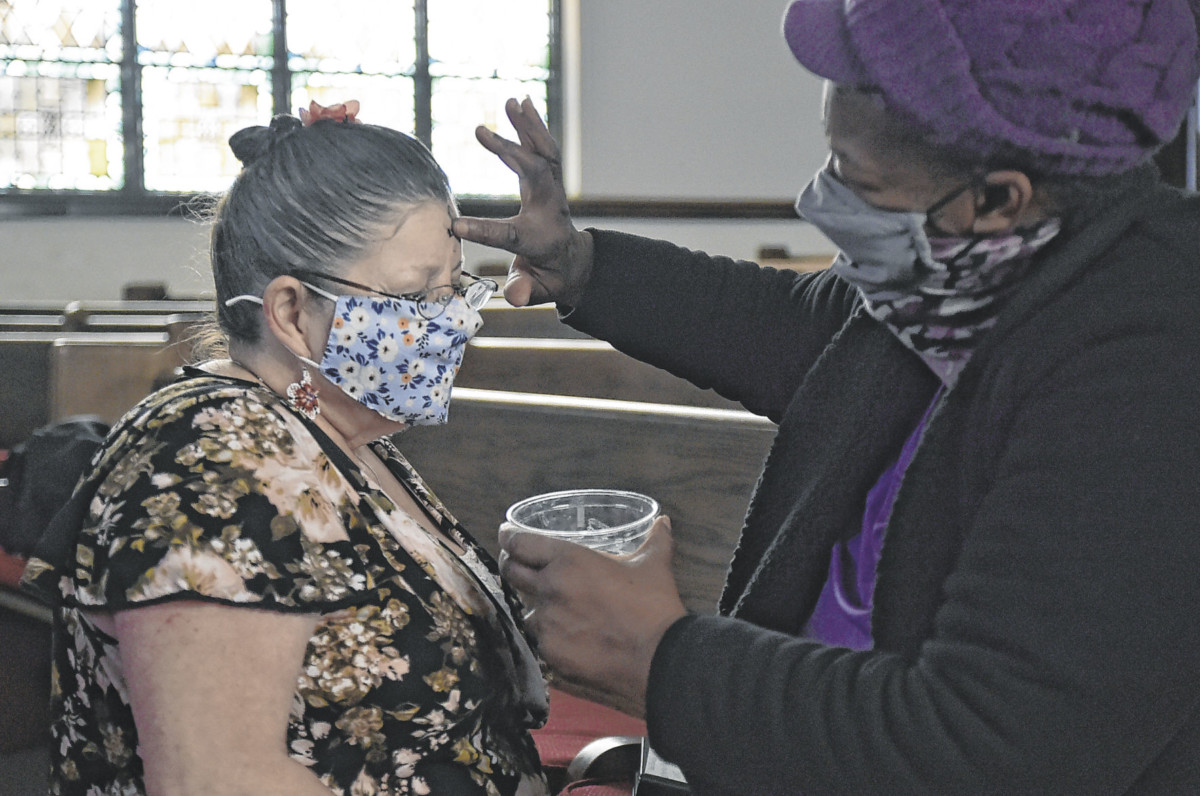
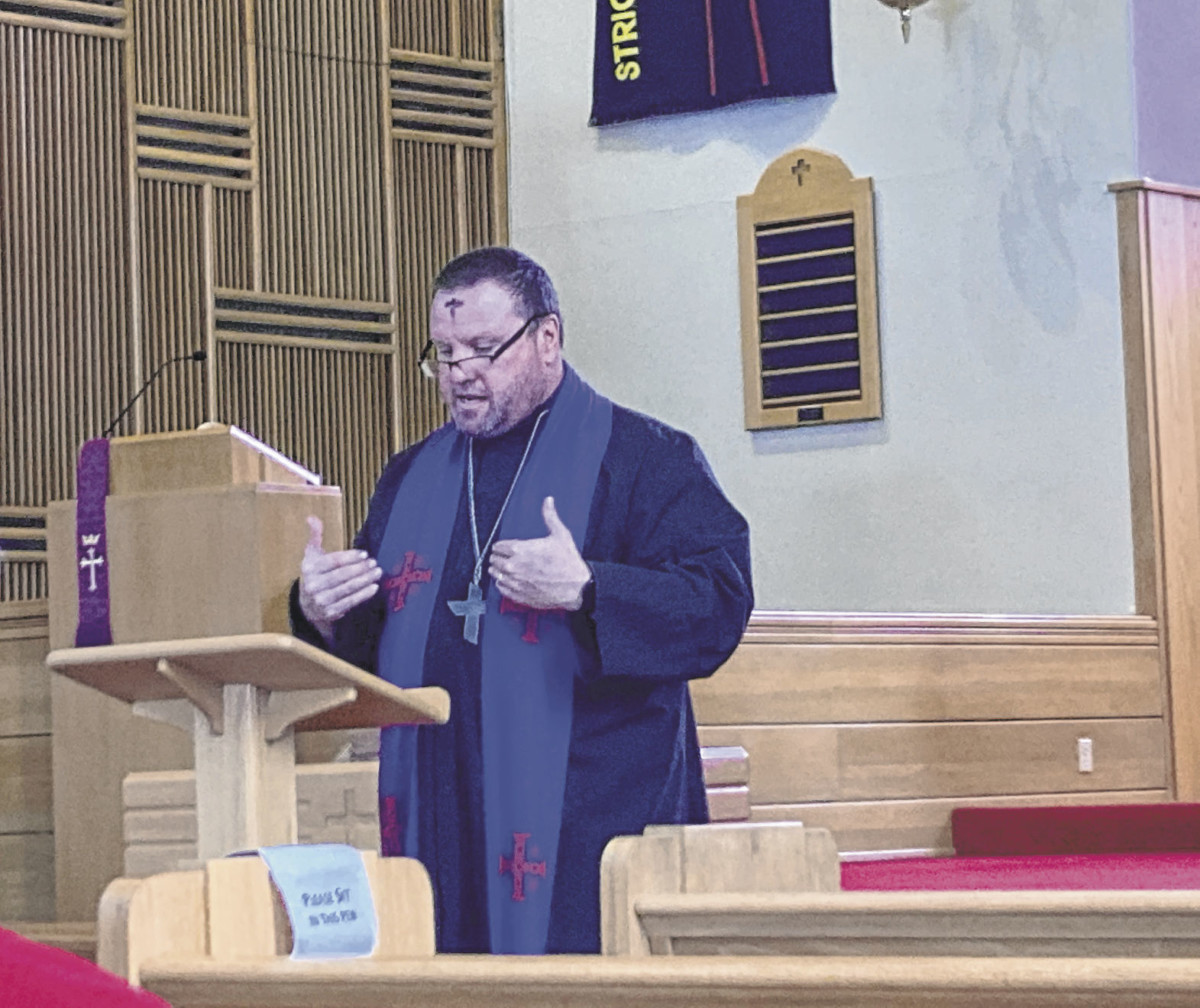
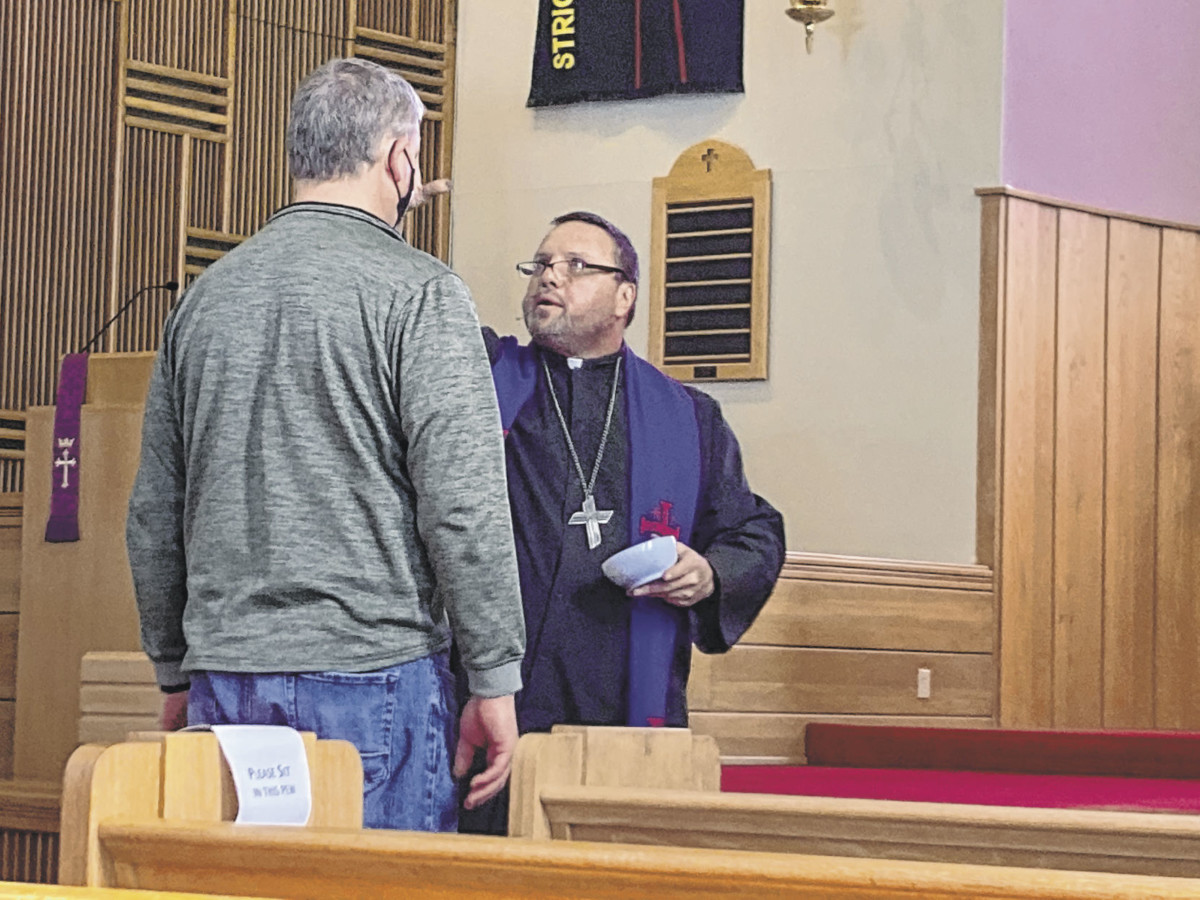
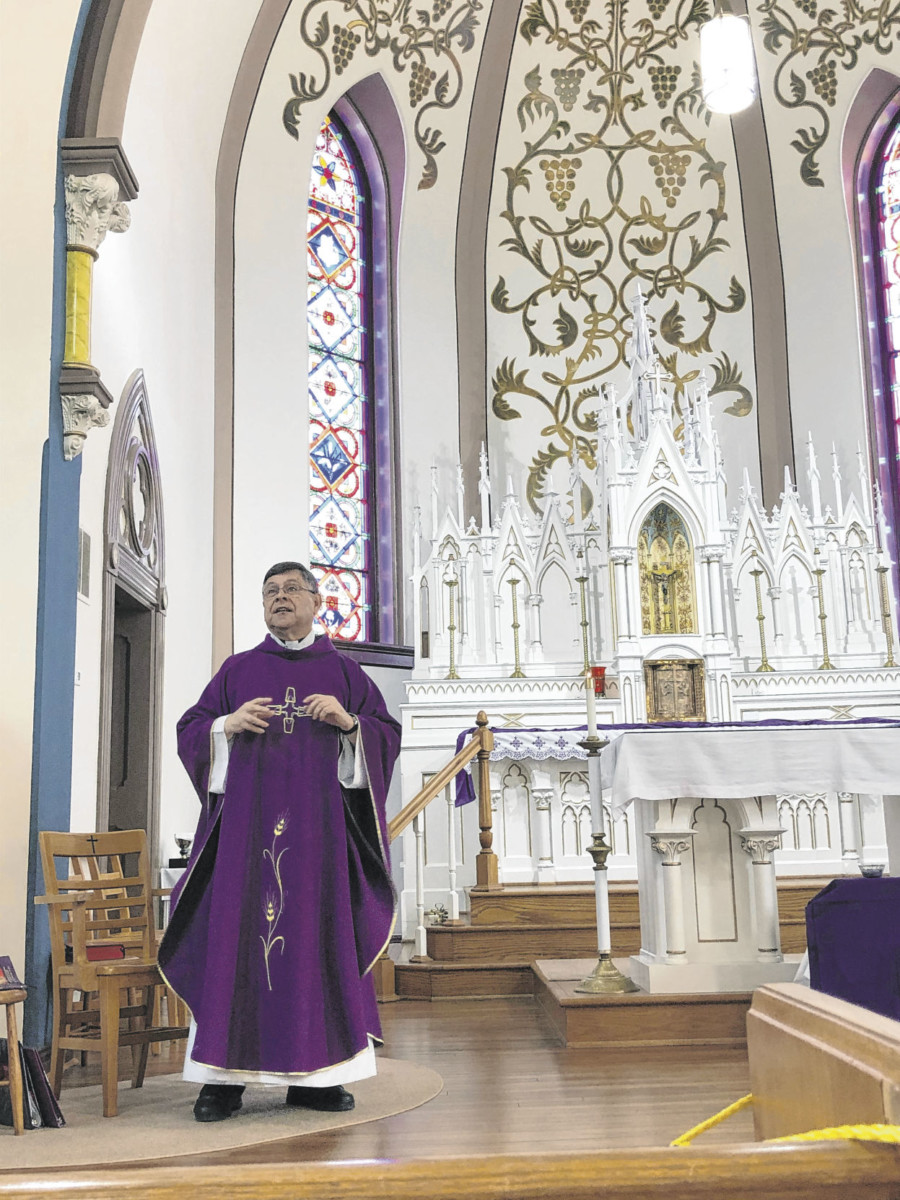
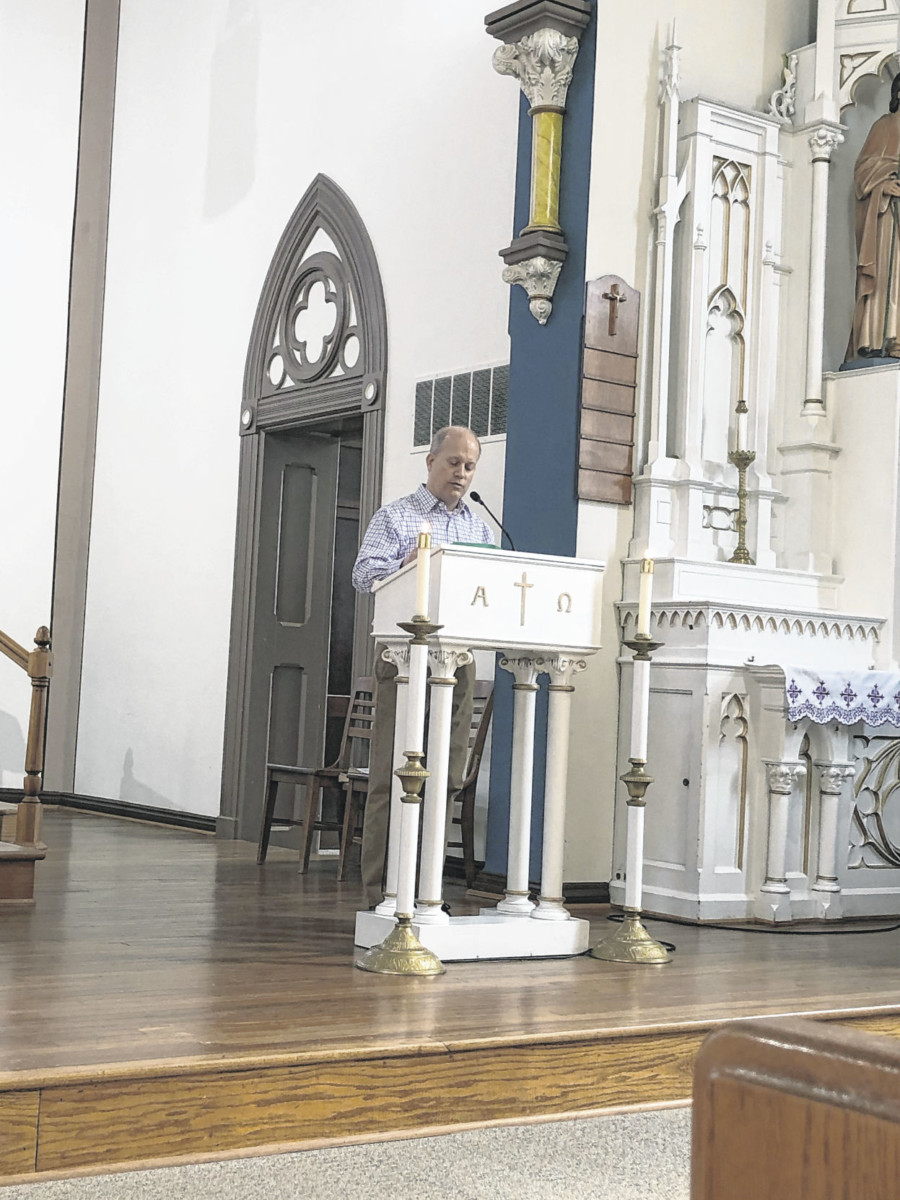
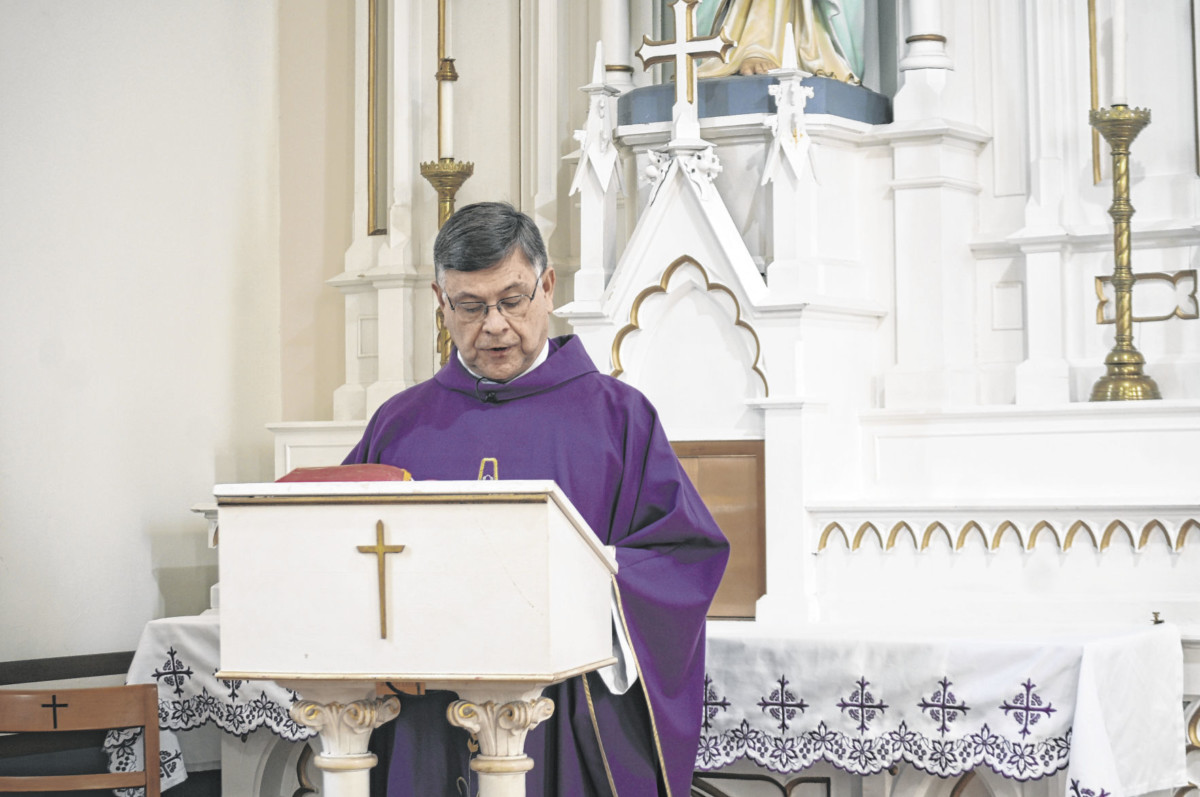
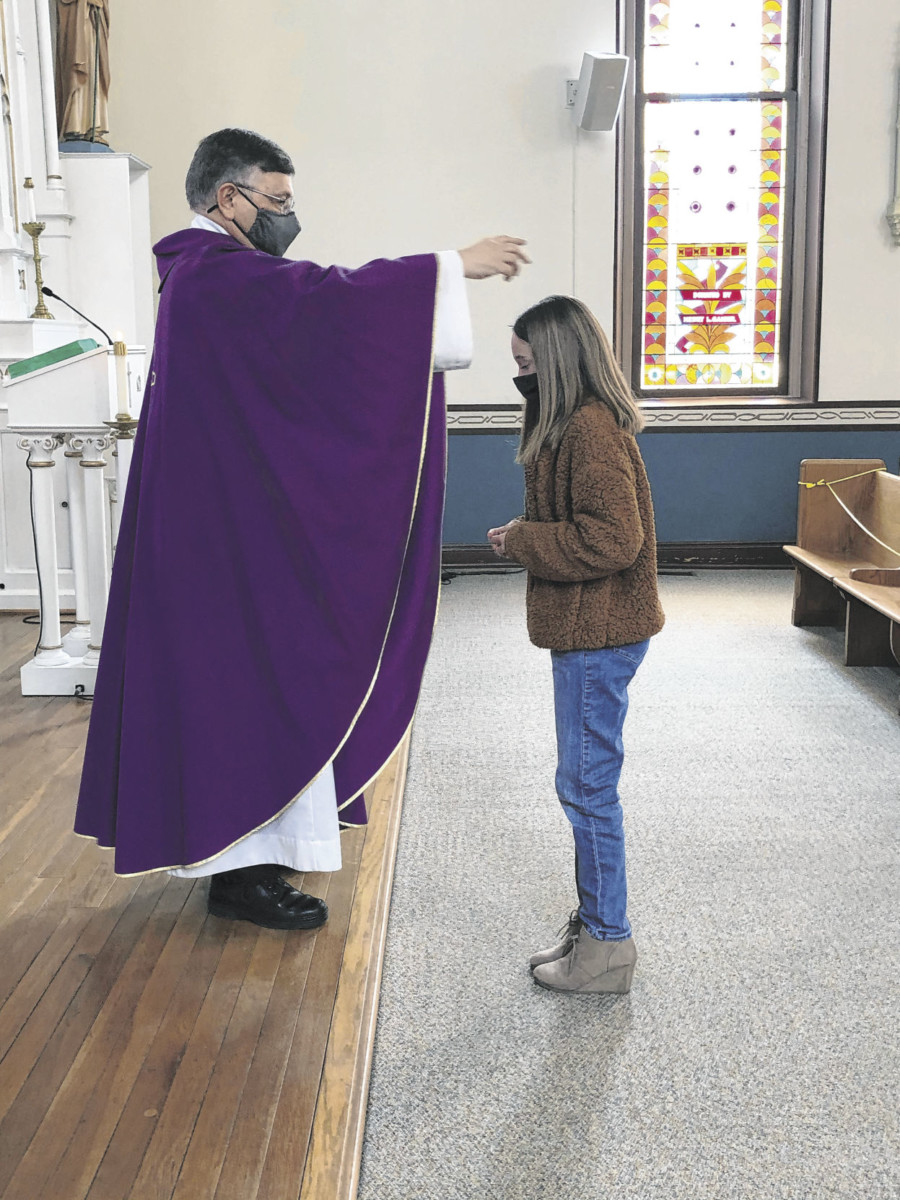
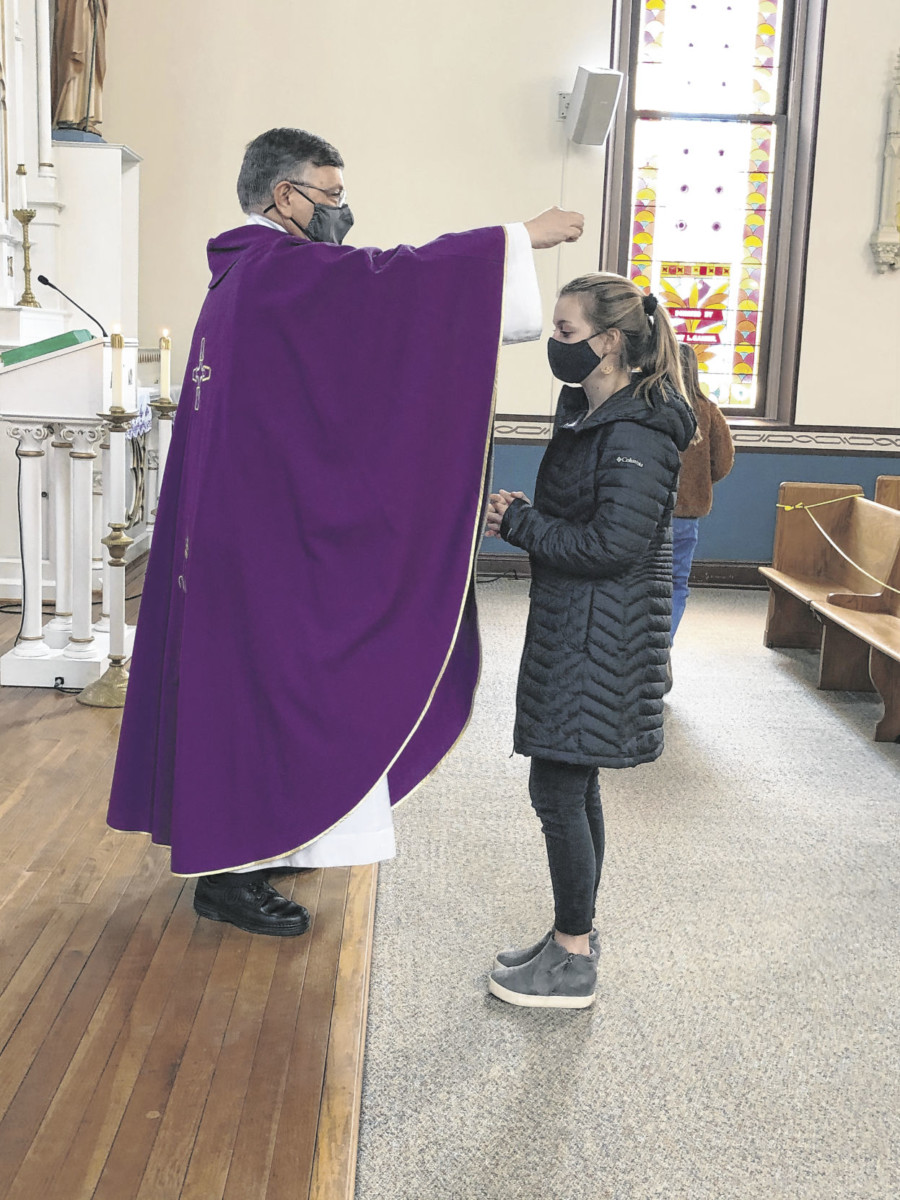
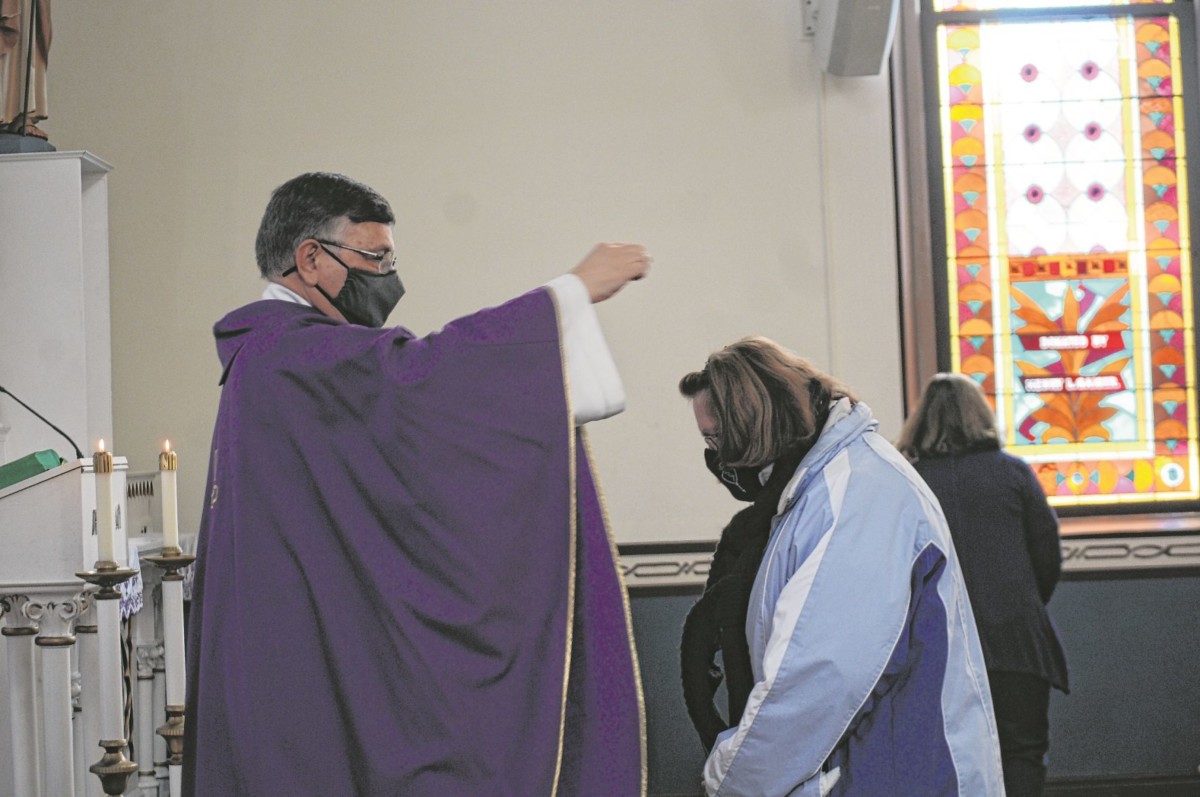
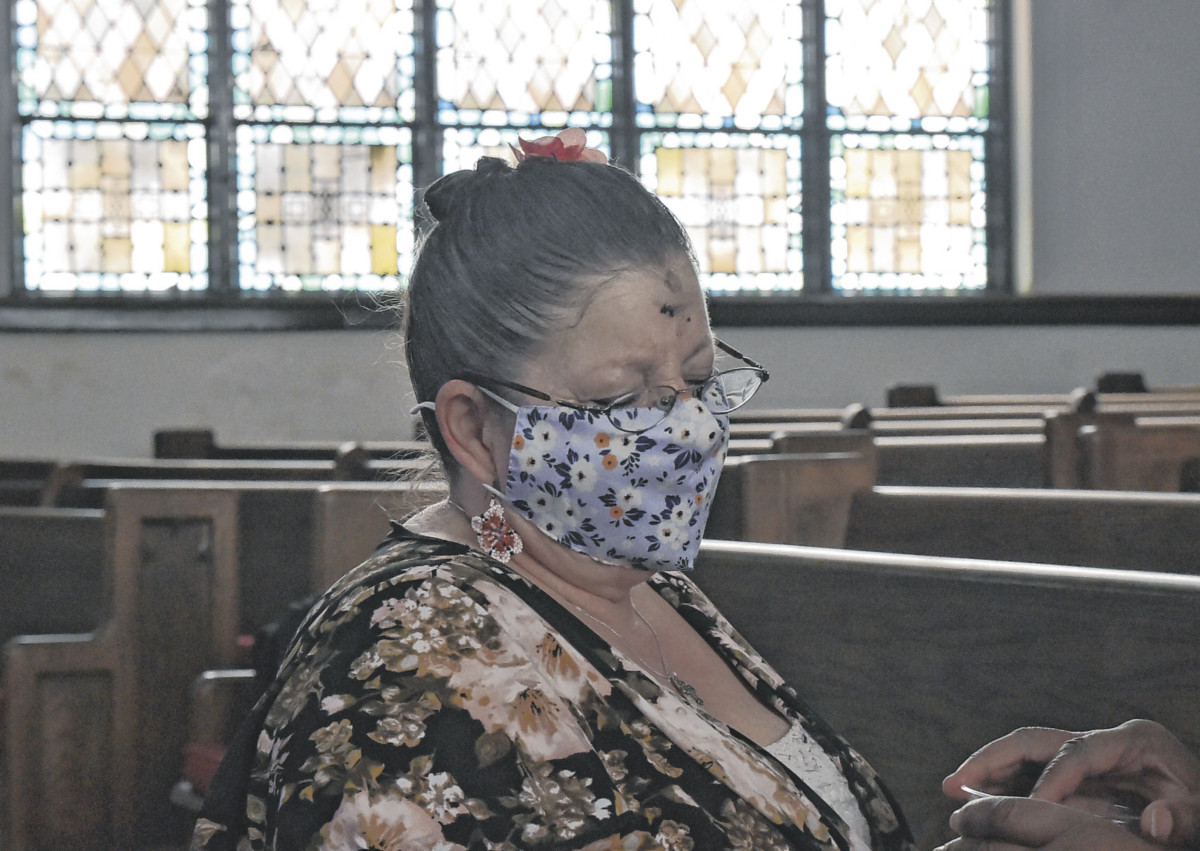
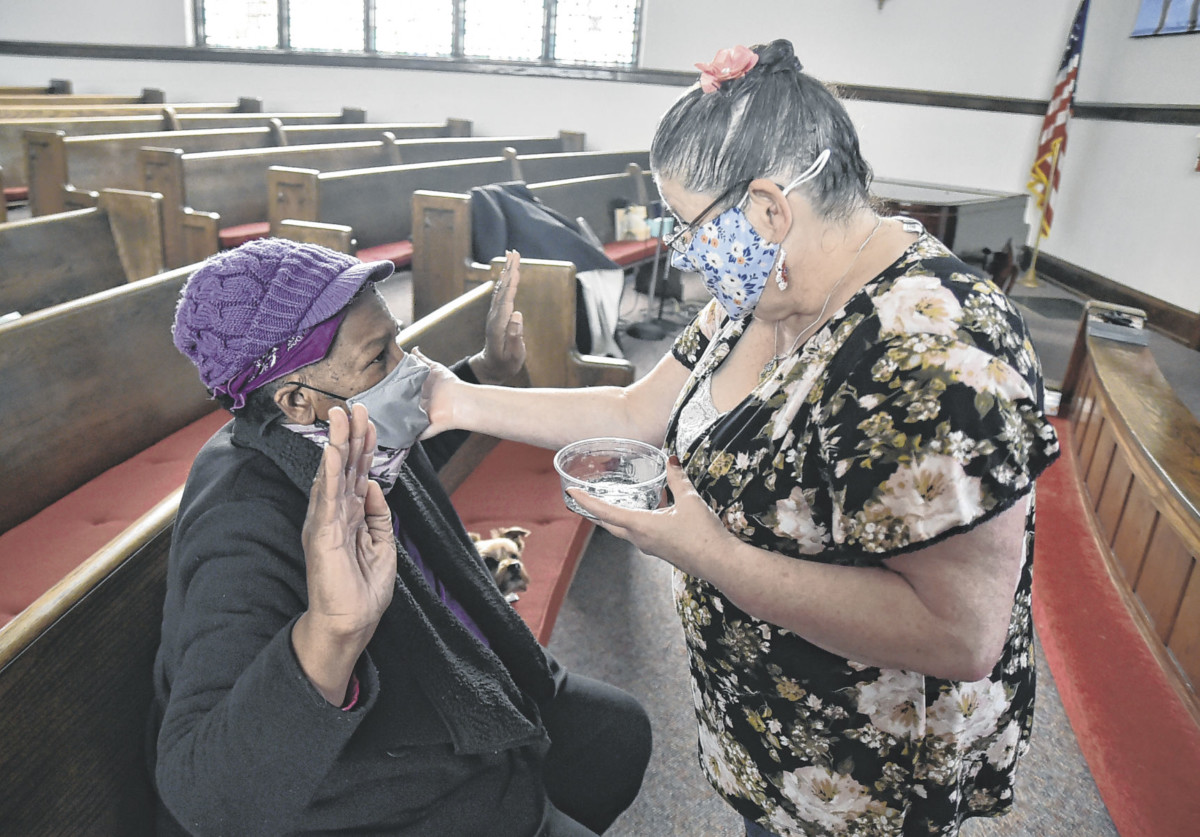
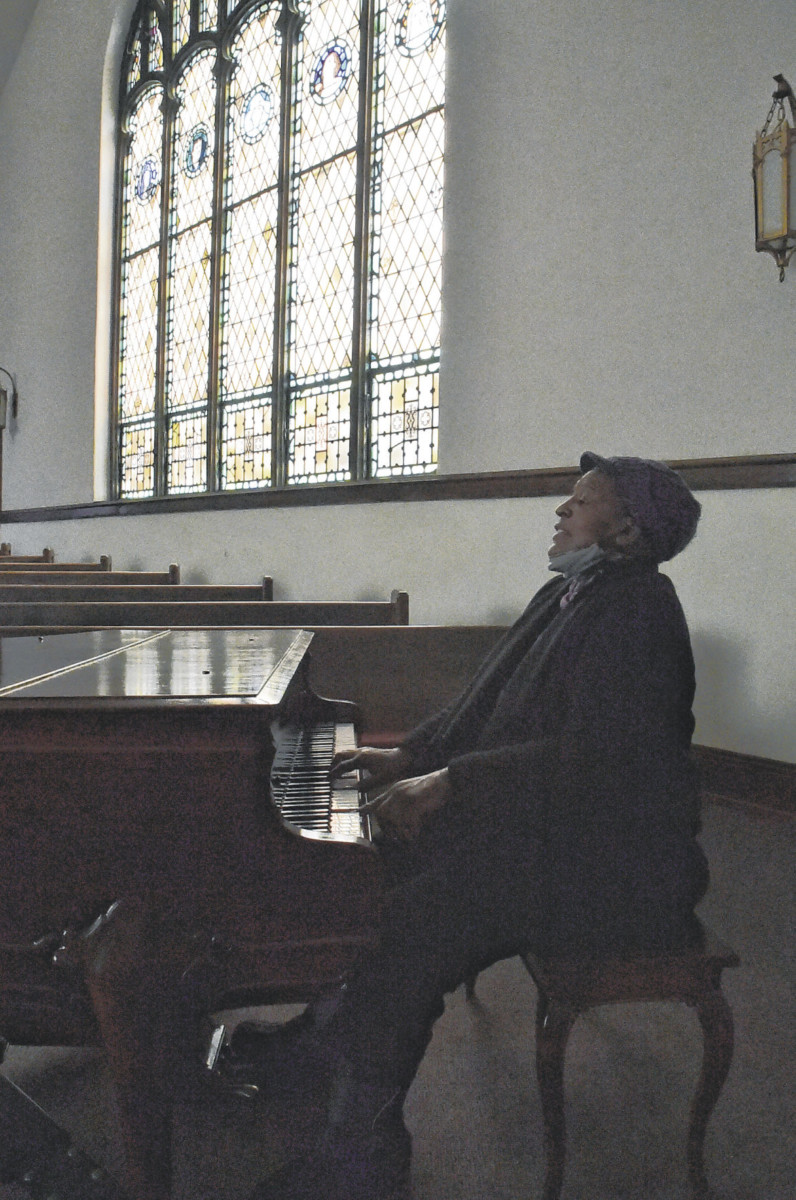
By Zach Spicer, Lori McDonald and Mitchell Banks
On Ash Wednesday, Angel Abshear has stood on the street with a dish of ashes in her hand while wearing a sign inviting people to come to her.
The ashes are for the repentance of sin. If a person freely accepts the forgiveness offered, Abshear dips her finger in the ashes and runs it across his or her forehead in the shape of a cross.
That evening, she would return to her church to lead an Ash Wednesday service.
This year, she was going to combine with other local churches for a service. That, however, didn’t pan out, but she still knew the importance of the Wednesday that marks the beginning of Lent, a time for Christians to make personal sacrifices and give to others.
So for six hours Wednesday, she was available inside Trinity United Methodist Church in Seymour for people to stop by for their ash marking and listen to singing and piano playing by traveling evangelist Marchelle Minafee of San Diego, California.
They kicked off the day by marking each other’s foreheads with ashes.
“The ashes remind us of our immortality — from ashes to ashes and dust to dust and we will return,” said Abshear, the church’s pastor. “They remind us that we are immortal, we are of flesh, that our sin nature is going to keep on. We look to continually die to self, and that’s what we do during the season of Lent.”
Lent takes place over a 40-day period that begins with Ash Wednesday. It’s a time for Christians to replicate and honor the sacrifices made by Jesus Christ and the 40 days he spent in the desert leading up to his death on the cross.
During Lent, Christians will sacrifice something of their own, whether that be fasting, abstinence, social media or other things.
“Through Lent, we have the opportunity to identify with Jesus Christ, with the suffering that he had,” Abshear said. “We remember that we are human, but through the end dwelling of the holy spirit, we can overcome sin on a day-to-day basis. … When we say, ‘Jesus, you are my lord, you are my master, I surrender myself to you’ and have him come in and cleanse us and take control of our lives, we begin to not want to sin.”
Abshear said the Lenten season is about spending extra time with Jesus Christ.
“We identify with suffering that he went through,” she said. “We deny ourselves. A lot of people will fast from meat or eat fish on Friday. People do things in a different way, but they fast, they pray. We find ways to get closer to Jesus.”
It all ends on Easter Sunday, also known as Resurrection Sunday, a Christian holiday that celebrates Jesus Christ rising from the dead.
Abshear said that is “a day of glorious celebration” and often is a day of baptisms.
“We will have one on Easter,” she said of a person planning to be baptized at her church on that day this year.
St. Ambrose Catholic Church
Lent is ultimately to prepare us to celebrate Easter more fully, Father Daniel Staublin of St. Ambrose Catholic Church in Seymour said.
“There is very much an emphasis on the passion of Jesus and how he suffered for us, and part of our preparation is what can we do to spiritually prepare,” he said.
Staublin said sprinkling ashes on the top of the head recalls the biblical practice of putting on sackcloth and ashes as an act of penance.
While the custom in the United States has been to mark the forehead with a cross, sprinkling the ashes on the head has been used for centuries and remains the custom in other parts of the world, such as Spain and Italy, he said.
The Book of Nehemiah states, “On the 24th day of this month, the Israelites gathered together while fasting and wearing sackcloth, their heads covered with dust” (Neh 9:1).
Touching people on the forehead with ashes was not advised by the Catholic superiors due to the COVID-19 pandemic, so Staublin sprinkled the ashes instead of smudging.
However the ashes are received, the interior repentance expressed by this exterior act is at the heart of the action, he said.
“Repent and believe in the Gospel,” Staublin said as ashes were sprinkled on the heads of students and parishioners at the end of the 12:15 p.m. Mass Wednesday.
The church also offers the Stations of the Cross prayer services each Friday during Lent and more opportunities to go to confession. It also encourages members to abstain from red meat on Fridays.
Members are encouraged to give something up to remember the sacrifice Christ made and also to help others in acts of charity.
Staublin said the season of Lent has three focuses: To pray more, do acts of charity and make sacrifices.
Robert Wilson and his wife, Becky, were at the 12:15 p.m. Mass to receive their ashes.
“You really don’t have to give anything up for Lent, but instead, you can make time to pray more or give something to someone else,” Becky said.
Robert said he will be indulging more in the Bible over the next 40 days and reciting the Chaplet of Divine Mercy using rosary beads.
Three sisters, Ellie, Marlo and Gabby Cornn, were at the Ash Wednesday service, where their father, Bret Cornn, was the lector for the service and led those in attendance in some readings.
Two other services with the distribution of ashes were held at the church later in the day, one at 5 p.m. and another at 7 p.m., which was a bilingual Mass.
Redeemer Lutheran Church
Redeemer Lutheran Church in Seymour had three Ash Wednesday services with Pastor Andrew Currao officiating.
Despite COVID-19 and inclement weather, about a dozen people showed up for the early afternoon service. The traditional service included Bible readings, hymns, communion and ashes.
A bulletin for the Ash Wednesday services reads, “This is a time for listening and responding to the call to return to faithfulness to the God who has ever been faithful to his people.”
The imposition of ashes occurred earlier in the service with most of the service happening after ashes were spread.
Currao said Ash Wednesday is a day about repentance, which is symbolized by ashes.
“It’s a time to return to him and first start by confessing our sins,” he said. “We are sinful people, and really recognizing the truth of his word that tells us we’re sinners, that’s where we really get that fact. Not because I feel it or I know it when I look in the mirror, but I know I’m a sinner because God’s Word tells me that. Because of his Word telling us that, we turn to him in repentance.”
When one receives ash on their forehead, the pastor giving it says, “Remember that you are dust, and to dust you shall return.”
This Scripture is to show the ashes also represent humanity’s mortality, Currao said.
“The ashes symbolize our mortality, ‘Dust we are and to dust we shall return,’ and they’re also symbolic of our repentance in mortality and repenting in our sin and recognizing ‘I am mortal. If I’m going to live and live forever, I need Jesus. I need the life that only God can create and give,’” he said.
